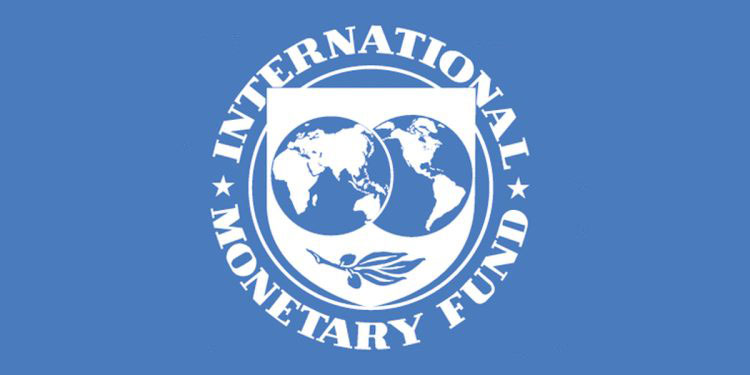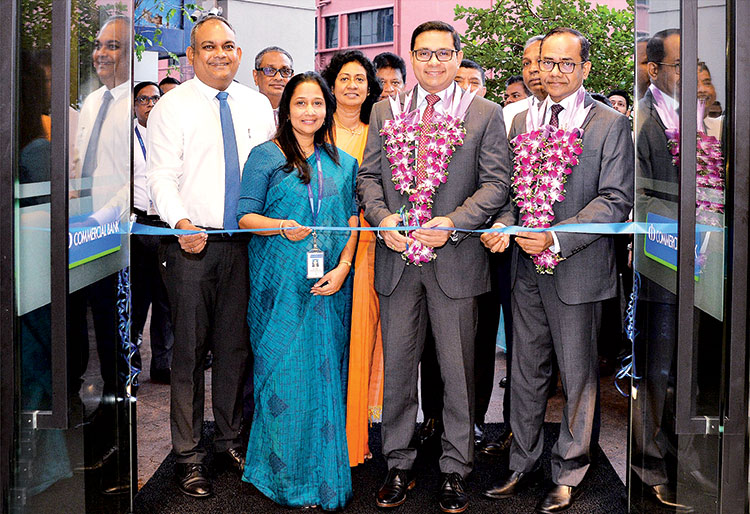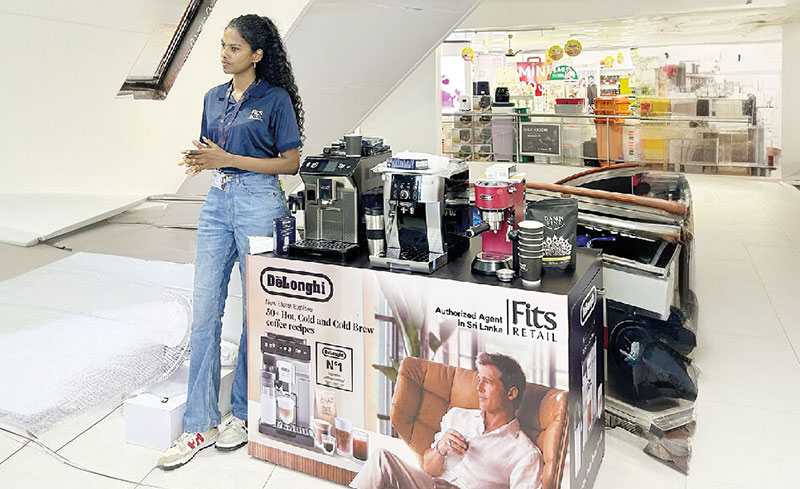Business
Ensuring sustainability in the pharma industry: key focus for 2021 says slcpi

The Sri Lanka Chamber of the Pharmaceutical Industry (SLCPI) reiterated their commitment towards ensuring the availability of efficacious, safe and good quality medicines to the general public, in the incoming year. When the COVID-19 pandemic forced the country into lockdown earlier this year, many industries, including pharmaceuticals, found themselves facing multiple challenges, which inevitably turned into valuable lessons for the year ahead.
Member companies of SLCPI were forced to act quickly to ensure the uninterrupted supply of medicine. They witnessed their business models change in real-time and at an unprecedented pace, which prompted the collaboration of various stakeholders to ensure that patients were always given priority.
From supply chain disruptions to the adaptation of new technology, SLCPI as an organisation is fully geared to face the year ahead and has identified several key areas that are seen as essential if the industry remains sustainable in the long run.
Creating a resilient supply chain
Locally and globally, one of the biggest lessons learnt during the pandemic for pharma-companies was managing pharmaceutical supply chain disruptions in response to COVID-19. With sudden changes to air routes and temporary interruptions to sea freight earlier this year, many companies had to formulate contingency plans to ensure an uninterrupted supply of medicine to the market. SLCPI member companies were quick to respond with critical adjustments made to its business processes, which resulted in a more agile and patient-centric supply chain.
Establishing effective communication across all departments; reaching out to principals from the very start of the lockdown to ensure that there was adequate inventory; and, working closely with government authorities was an essential element in creating a resilient supply chain.
Throughout this process, priority was given to patients’ with NCDs’ and essential medicine. SLCPI is thankful for members who worked tirelessly to ensure that adequate stocks of essential medicines were made available to patients and hospitals.
Towards sustainable pricing
Another top priority for the Chamber in the coming year is the implementation of a fair pricing mechanism, to ensure the availability of efficacious, safe and good quality medicines, medical devices and borderline products to the general public.
At present, the government and regulators depend on ad-hoc price controls on medicine and pharmaceuticals to keep prices in check. This mechanism has proven to be unsustainable in the long run.
Presently, the National Medicine Regulatory Authority of Sri Lanka (NMRA) has imposed a price ceiling on 73 molecules with the intention of making these medicines more affordable and accessible to patients.
The lack of a proper mechanism for the regulation of prices along with high regulatory fees has only negatively impacted the industry, which is already burdened by fragile market conditions owing to COVID-19 and a depreciating rupee, making importing drugs more expensive.
“What we need right now is a rational mechanism that is simple & workable. Pharmaceutical poricing is complex as we are dealing with medicines, patients and the country’s healthcare needs. It is essential to take a collaborative approach between the industry and regulators on the best way forward” stressed SLCPI Vice President Sanjiva Wijesekera.
The World Health Organisation (WHO) states that strong pharmaceutical pricing policies in countries can improve pharmaceutical products’ affordability when carefully planned, carried out, and regularly checked and revised according to changing conditions (WHO guideline on country pharmaceutical pricing policies, 2020).
Essential to the Pharma Industry’s sustainability is the implementation of an ethics framework, to maintain standards and uniformity in the industry. The Chamber recognises the need for self-regulation, which is pivotal to address non-ethical practices in the healthcare industry. SLCPI is committed to working with stakeholders within the medical fraternity to promote ethical marketing, prescribing medicines, and creating awareness on a subject that impacts the image of the healthcare industry as a whole.
Over the years, SLCPI has hosted workshops and courses to promote ethical pharmaceutical practices among pharmaceutical representatives to ensure they are well trained on the rules, regulations and industry codes. Meanwhile, several SLCPI member companies have gone as far as to provide training to pharmacists on dispensing medicines to customers.
“The focus in the year ahead is to work with doctors and healthcare professionals to standardise the behaviour of medical representatives, minimise complaints received by hospitals and collaborate with governmental partners to implement and action, an ethics framework,” said SLCPI Vice President Sanjiva Wijesekera.
COVID – 19 has been a defining year for the industry, forcing companies in all sectors to accelerate the digitisation of their customer and supply-chain interaction and their internal operations by three to four years (Mckinsey, 2020).
What does the future hold?
Vice President of SLCPI Sanjiva Wijesekera says that emerging technologies are transforming the pharmaceutical sector, and members are integrating new technology in their day to day operations.
“The pharma industry is striving to maintain a balance between the need for novel medicinal drugs, improved operational efficiencies, and innovation in areas such as precision medicine, wearables, and digital therapeutics—all of which can directly impact the pharma value chain,” said SLCPI Vice President Sanjiva Wijesekera.
With a rapidly ageing population and rise in non-communicable diseases (NCD) in Sri Lanka, the demand for pharmaceuticals and medical care too is increasing.
“SLCPI is committed to its vision of making available quality medicines for all Sri Lankans, and we need to enhance our systems to ensure that we make this possible. At a consumer level, there is also more that can be done to educate the public about the impact that their lifestyle choices can have on the quality of life. By adopting a holistic strategy that addresses all stakeholders, I believe that we can arrive at a truly progressive outcome for all,” Wijesekera added.
Business
IMF staff team concludes visit to Sri Lanka

An International Monetary Fund (IMF) team led by Evan Papageorgiou visited Colombo from April 3 to 11, 2025. After constructive discussions in Colombo, Mr. Papageorgiou issued the following statement:
“Sri Lanka’s ambitious reform agenda supported by the IMF Extended Fund Facility (EFF) continues to deliver commendable outcomes. The post-crisis growth rebound of 5 percent in 2024 is impressive. Inflation declined considerably in recent quarters and has fallen to ‑2.6 percent at end-March 2025. Gross official reserves increased to US$6.5 billion at end-March 2025 with sizeable foreign exchange purchases by the central bank. Substantial fiscal reforms have strengthened public finances.
“The recent external shock and evolving developments are creating uncertainty for the Sri Lankan economy, which is still recovering from its own economic crisis. More time is needed to assess the impact of the global shock and how its implications for Sri Lanka can be addressed within the contours of its IMF-supported program.
“The government’s sustained commitment to program objectives is ensuring policy continuity and program implementation remains strong. Going forward, sustaining the reform momentum is critical to safeguard the hard-won gains of the program and put the economy on a path toward lasting macroeconomic stability and higher inclusive growth.
“Against increased global uncertainty, sustained revenue mobilization efforts and prudent budget execution in line with Budget 2025 are critical to preserve the limited fiscal space. Boosting tax compliance, including by reinstating an efficient and timely VAT refund mechanism, will help contribute to revenue gains without resorting to additional tax policy measures. Avoiding new tax exemptions will help reduce fiscal revenue leakages, corruption risks and build much needed fiscal buffers, including for social spending to support Sri Lanka’s most vulnerable. Restoring cost recovery in electricity pricing will help minimize fiscal risks arising from the electricity state-owned enterprise.
“The government has an important responsibility to protect the poor and vulnerable at this uncertain time. It is important to redouble efforts to improve targeting, adequacy, and coverage of social safety nets. Fiscal support needs to be well-targeted, time-bound, and within the existing budget envelope.
“While inflation remains low, continued monitoring is warranted to ensure sustained price stability and support macroeconomic stability. Against ongoing global uncertainty, it remains important to continue rebuilding external buffers through reserves accumulation.
“Discussions are ongoing, and the authorities are encouraged to continue to make progress on restoring cost-recovery electricity pricing, strengthening the tax exemptions framework, and other important structural reforms.
“The IMF team held meetings with His Excellency President and Finance Minister Anura Kumara Dissanayake, Honorable Prime Minister Dr. Harini Amarasuriya ; Honorable Labor Minister and Deputy Minister of Economic Development Prof. Anil Jayantha Fernando, Honorable Deputy Minister of Finance and Planning Dr. Harshana Suriyapperuma, Central Bank of Sri Lanka Governor Dr. P. Nandalal Weerasinghe, Secretary to the Treasury Mr. K M Mahinda Siriwardana, Senior Economic Advisor to the President Duminda Hulangamuwa, and other senior government and CBSL officials. The team also met with parliamentarians, representatives from the private sector, civil society organizations, and development partners.
“We would like to thank the authorities for the excellent collaboration during the mission. Discussions are continuing with the goal of reaching staff-level agreement in the near term to pave the way for the timely completion of the fourth review. We reaffirm our commitment to support Sri Lanka at this uncertain time.”
Business
ComBank unveils new Corporate Branch at Head Office

The Commercial Bank of Ceylon has transformed its iconic ‘Foreign Branch’ into the ‘Corporate Branch,’ reaffirming its commitment to delivering dedicated, comprehensive financial solutions to corporate and trade customers.
The Bank said this transformation represents a new milestone in its illustrious journey, and resonates with the rich commercial heritage of Colombo, a city that has long served as a vital trading hub in the region.
Strategically located at the Bank’s Head Office at Commercial House, 21, Sir Razeek Fareed Mawatha (Bristol Street), Colombo 1, this rebranded Corporate Branch stands as a first of its kind in Sri Lanka —a premier financial hub tailored exclusively to the needs of corporate customers, the Bank said. The transformation aligns with the Bank’s vision of providing unparalleled service excellence, bespoke financial solutions, and fostering long-term business partnerships.
Commenting on this strategic initiative, Commercial Bank’s Managing Director/CEO Sanath Manatunge stated: “It is our aspiration that just as the historic Delft Gateway, at which our Head Office is located, once opened the path to the Dutch Fort, our Corporate Branch will chart a new era of enduring and prosperous business collaborations, that will extend beyond Sri Lanka’s shores.”
Business
Fits Retail and Abans PLC Unveil Exclusive DeLonghi Premium Coffee Experience

Fits Retail has partnered with retail giant Abans PLC to showcase the iconic DeLonghi coffee machines at two of Colombo’s most prestigious locations: Abans Elite Colombo 3 and Abans Havelock City Mall showrooms.
At these dedicated demonstration zones, visitors can discover the unparalleled precision engineering and user-friendly technology that have made DeLonghi machines the preferred choice for discerning coffee lovers in more than 46 countries worldwide. Renowned for consistently delivering café-quality espresso, cappuccino, and even specialty cold brews, DeLonghi machines exemplify Italian innovation at its finest.
Yasas Kodituwakku, CEO of Fits Retail, expressed excitement about the collaboration: “This partnership represents our unwavering commitment to bringing global coffee excellence to Sri Lankan connoisseurs. With Abans PLC, we’re creating more than just demonstration spaces; we’re curating premium destinations for an authentic coffee experience.”
“As pioneers of premium lifestyle experiences in Sri Lanka, our collaboration with Fits Retail aligns seamlessly with our vision of elevating everyday moments into exceptional experiences,” said Tanaz Pestonjee, Director Business Development at Abans PLC.
-

 News5 days ago
News5 days agoSuspect injured in police shooting hospitalised
-

 Features6 days ago
Features6 days agoRobbers and Wreckers
-

 Business6 days ago
Business6 days agoBhathiya Bulumulla – The Man I Knew
-

 Business5 days ago
Business5 days agoSanjiv Hulugalle appointed CEO and General Manager of Cinnamon Life at City of Dreams Sri Lanka
-

 Business7 days ago
Business7 days agoNational Anti-Corruption Action Plan launched with focus on economic recovery
-

 Features4 days ago
Features4 days agoLiberation Day tariffs chaos could cause permanent damage to US economy, amid global tensions
-

 Business4 days ago
Business4 days agoMembers’ Night of the Sri Lanka – Russia Business Council of The Ceylon Chamber of Commerce
-

 Features4 days ago
Features4 days agoMinds and Memories picturing 65 years of Sri Lankan Politics and Society











